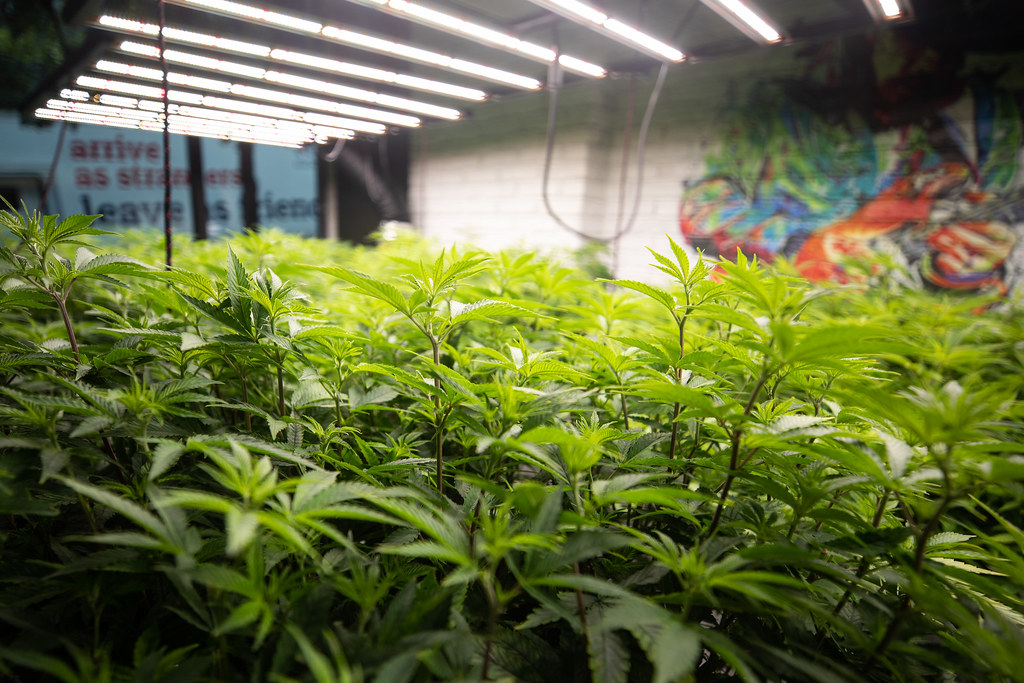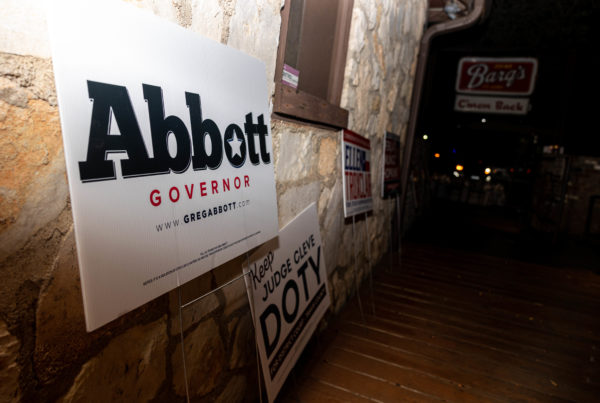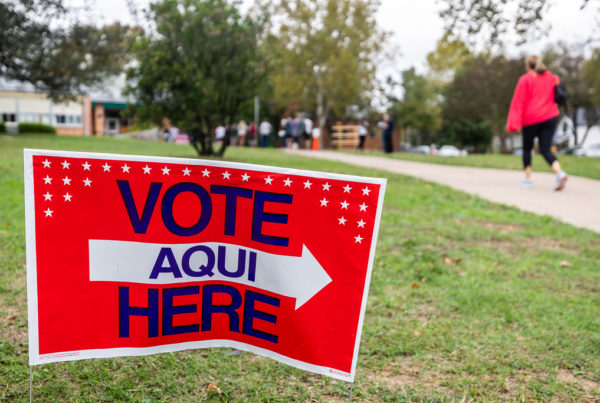One notable winner in Tuesday’s midterms wasn’t a Democrat or a Republican – it was a policy.
Cannabis decriminalization gained ground in Texas this week when five Texas cities passed local ballot measures to reduce or eliminate penalties for low-level weed possession.
Voters in San Marcos, Denton, Elgin, Killeen and Harker Heights approved propositions that end arrests for possession of less than four ounces of marijuana, in most cases – and this comes only months after Austin passed a similar measure back in May. Progressive group Ground Game Texas spearheaded the initiative by collecting signatures to put marijuana decriminalization on the ballot in those cities.
The measures all passed with strong support from voters. Even the proposition with the lowest approval rating – the one in Harker Heights – still passed with more than 60% of votes in its favor. Could this victory signal an attitude shift in marijuana policy statewide?
Katharine Neill Harris, a drug policy fellow with Rice University’s Baker Institute for Public Policy, spoke with the Standard about growing bipartisan support for cannabis decriminalization and how it may play out in the upcoming legislative session.
This transcript has been edited lightly for clarity:
Texas Standard: Propositions in these five cities all passed with strong support. How have attitudes toward marijuana policy shifted in Texas in the past decade?
Katharine Neill Harris: Yeah, I think that these votes reflect what we’ve already seen in some polling from the last several years, which is that a majority of Texans do support at least decriminalizing marijuana possession, and we’ve seen that among Republicans and Democrats. I think that the ballot measures were so successful because, you know, we haven’t seen change at the state level, and so I think now there is a desire for local-level change in place of that.
A couple of things strike me, though, about these propositions and where they were. Of course, you’re talking about San Marcos and Denton, both home to two big universities. You have Elgin, which is on the outskirts of Austin. You have Killeen and Harker Heights, both near Fort Hood. Do you see anything about the geographic location, perhaps pointing toward a strategy for getting some of these propositions passed?
Yeah, so I think one of the things that this shows is that the support for marijuana decriminalization isn’t just coming from the largest counties. It isn’t just Austin; it isn’t just Houston, you know, that support this. It is some of these outlying suburbs. It’s places where Republicans win. These aren’t liberal strongholds, even though there are certainly a large university presence in some of them, so I think that demonstrates that it really is widespread.
What about the strategy of local ballot measures versus, say, a legislative effort? Can we expect to see any measures in the next legislative session acknowledging what’s happening in these different cities – and for that matter, given the makeup of the Legislature, would they even have a chance?
So, the past few legislative sessions, each one, there’s been several bills kind of around decriminalizing possession in different forms. I would expect to see that same kind of thing happen this legislative session, and we’ve seen Republican support from, you know, state representatives and senators for decriminalization in the past. It’s just that there’s been trouble to actually get the bills moved out of the Senate. That’s been the holdup the last couple of sessions, so I think that these votes in these more suburban areas – I do think that will send a message to legislators that, you know, this issue, it’s a safe political issue. It’s a popular political issue, and hopefully, that sends the message to the leadership as well that, you know, this is something that a broad contingent of Texans want.
Well, if it’s so broad, why is it that key lawmakers are blocking this kind of legislation? It seems to be happening in the Senate — certainly worked out that way last year after the House passed a bill that would lower the criminal penalty for possessing small amounts of marijuana. It’s a long way from legalization, but nonetheless, it appears Senate leaders didn’t want to get behind it. What accounts for that?
Well, in the Senate, the lieutenant governor, Dan Patrick – unique to Texas– has very broad authority to decide which bills the Senate hears and which it doesn’t. And I mean, simply put, he didn’t want some of those bills around marijuana decriminalization to get a hearing in the Senate.
And so I’m hopeful, and I think other reform advocates are hopeful, this session might be different, given not only what we saw on election night, but also, you know, there have been messages coming from Governor Abbott saying that he doesn’t think that people should be jailed for small amounts of marijuana, which does suggest some support from the leadership for some type of reform. And that message then, I think, can trickle down to people in the Senate – to think that, okay, well, this is something that, you know, maybe we can support and not have to worry that would end up getting vetoed.















